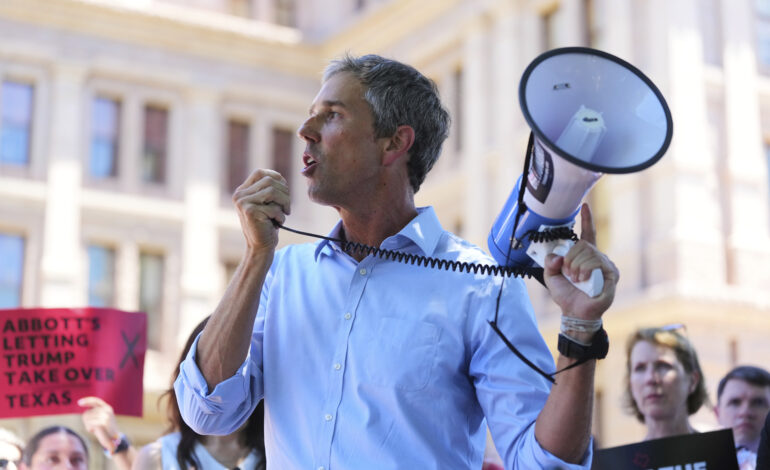Paxton Seeks Jail Time for O’Rourke Over Fundraising Controversy

Texas Attorney General Ken Paxton has urged a state judge to jail former Congressman Beto O’Rourke in connection with fundraising activities related to a contentious redistricting battle. This request, made on March 15, 2024, emphasizes the ongoing tensions surrounding electoral practices in Texas and the legal ramifications that may ensue.
The situation stems from allegations that O’Rourke misled donors about a $1 million fundraising campaign aimed at challenging redistricting maps drawn by Paxton’s office. According to Paxton, O’Rourke’s statements constituted an “outright lie” and warranted severe penalties, including potential jail time.
Beto O’Rourke, who has been a vocal critic of Paxton’s policies, plans to counter these claims by seeking sanctions against the Attorney General. O’Rourke’s legal team asserts that Paxton’s accusations are politically motivated and aim to suppress opposition during a critical election period.
Details of the Legal Dispute
The legal dispute highlights the charged political atmosphere in Texas. O’Rourke’s fundraising efforts have reportedly garnered significant support, emphasizing voter concerns over redistricting practices perceived as unfair. The upcoming legal proceedings could further complicate the already fraught relationship between these two prominent figures in Texas politics.
In a statement released following Paxton’s request, O’Rourke expressed confidence in his position, stating, “This is a desperate attempt to silence dissenting voices and undermine our democratic process.” His team maintains that the fundraising campaign was conducted transparently and within legal limits.
Paxton’s request for jail time represents a significant escalation in their ongoing feud. Legal experts suggest that while the request for incarceration is unusual, it reflects the increasingly aggressive tactics employed by both sides in this politically charged environment.
Implications for Texas Politics
This legal battle will likely have broader implications for the political landscape in Texas. The state’s redistricting efforts have drawn scrutiny from various stakeholders, including voter advocacy groups and political analysts. Many observers are concerned that such disputes may further polarize the electorate and impact voter turnout in upcoming elections.
As the case unfolds, both Paxton and O’Rourke will continue to engage their respective bases, framing the narrative around this legal skirmish in ways that resonate with their supporters. The outcome may not only shape their political futures but also influence the broader conversation about electoral integrity in Texas.
In conclusion, the ongoing conflict between Ken Paxton and Beto O’Rourke underscores the complexities of political rivalry in the state. As the situation develops, attention will remain focused on the courts, where the fate of this high-stakes legal confrontation will ultimately be decided.






